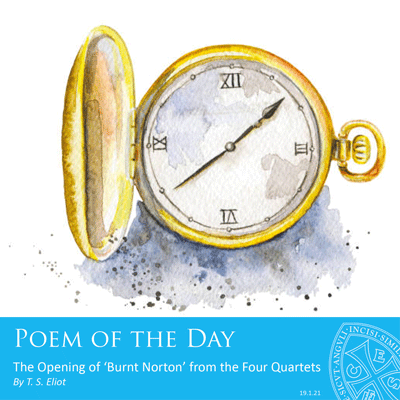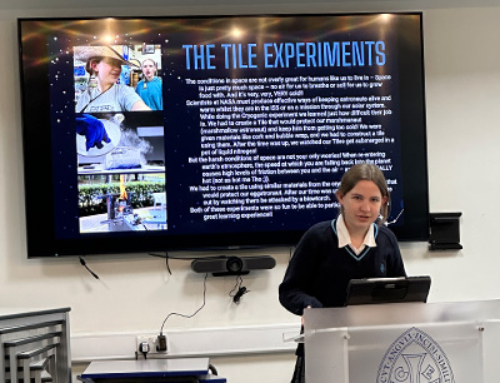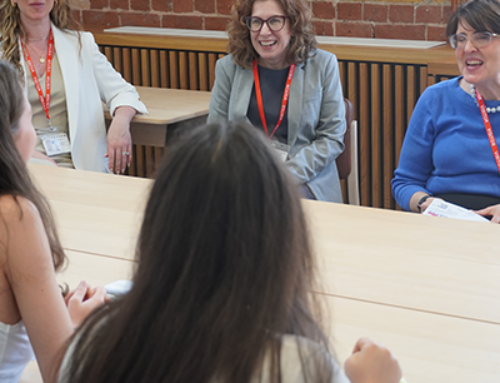Today’s poem is brought to you by Director of Sixth Form, Mrs Banks.
“Right now, I’m divorced from my collection of poetry books. And like all of you, I’m sure, I didn’t fancy spending any longer than necessary in front of a screen. That kind of browsing just doesn’t hold the pleasure of browsing through a poetry anthology. So instead, I pulled out a half-remembered fragment, the opening of T.S. Eliot’s ‘Burnt Norton’, the first section of his long work, The Four Quartets. I need to be completely honest here and admit that I could only remember the first three lines and needed to look up the rest, but what a terrific first three lines these are.
This is the same T.S. Eliot mentioned by Mr Macdonald-Brown yesterday. It was T.S. Eliot who wrote ‘Old Possum’s Book of Practical Cats’, the collection of poems on which the musical was based. That said, the adventures of Macavity, Jellicles and Mr Mistoffelees are not representative of most of Eliot’s poetry, which tends to be, well, rather less joyful and more challenging than these feline frolics would suggest. The title of his most famous poem, The Wasteland (1922), perhaps gives you a better flavour of his work.
But today I’d like to put in a plug for difficult poetry and make the case for living with poems that you don’t completely understand. Can you ever ‘completely’ understand a poem anyway? Sometimes – often – the power of a poem is in its music, which can affect us deeply without us knowing quite why. In these lines, Eliot contemplates time and memory, of the inextricable links between present, past and future. Indeed, can we confidently separate our experience of each? Have your perceptions of time been altered by the strange locked down experience we’re enduring? Sometimes, Eliot seems to suggest, “what might have been” haunts us even more than what has been.
I hope that Eliot’s words “echo/Thus, in your mind” as they do in mine and that you might be tempted to find a copy of The Four Quartets and read on.”
“Time present and time past
Are both perhaps present in time future,
And time future contained in time past.
If all time is eternally present
All time is unredeemable.
What might have been is an abstraction
Remaining a perpetual possibility
Only in a world of speculation.
What might have been and what has been
Point to one end, which is always present.
Footfalls echo in the memory
Down the passage which we did not take
Towards the door we never opened
Into the rose-garden. My words echo
Thus, in your mind.
But to what purpose
Disturbing the dust on a bowl of rose-leaves
I do not know.
Other echoes
Inhabit the garden. Shall we follow?”














